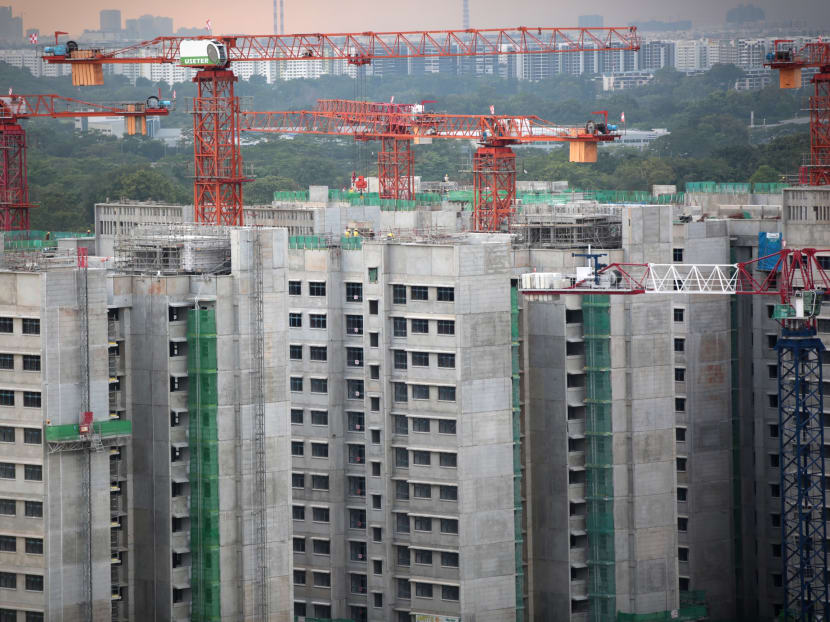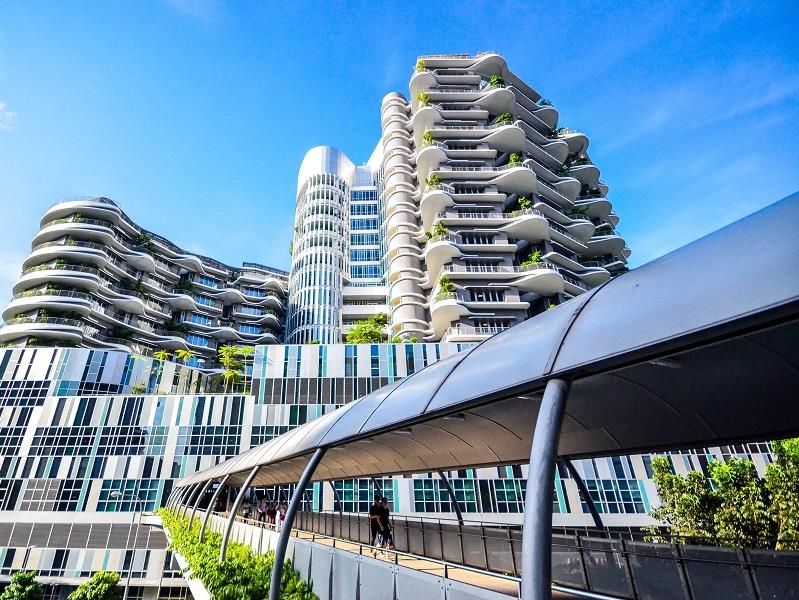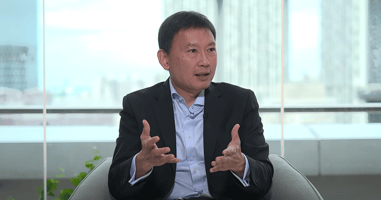What 55,000 New BTO Flats by 2027 Mean for Singapore's Property Landscape
The Housing and Development Board's latest announcement represents the most significant policy pivot in Singapore's public housing strategy since the introduction of Build-To-Order flats in 2001. National Development Minister Chee Hong Tat's recent interview with local media revealed a comprehensive housing roadmap that will fundamentally alter the property investment calculus for middle-class Singaporeans.
At the heart of this transformation lies a simple arithmetic: 55,000 new BTO flats launching between 2025 and 2027—a 10% increase from the previously announced 50,000 units. For Singapore's property-owning class, this isn't merely a supply announcement; it's a strategic recalibration that could determine whether your HDB flat remains a wealth-building asset or becomes a liability.
The Numbers Game: Beyond the 55,000 Figure
The government's housing strategy reveals a sophisticated understanding of market dynamics that extends far beyond simple supply metrics. Minister Chee Hong Tat stated: "Shorter waiting time flats offer a closer substitute for resale flats and can, hence, help to moderate resale prices."
This statement carries profound implications for current property owners. The planned increase in shorter waiting time flats—from the previous commitment of 2,000 to 3,000 annually to approximately 4,000 units per year in 2026 and 2027—represents a deliberate market intervention designed to provide alternatives to the resale market.
The mathematics are telling: with 8,000 BTO flats reaching their minimum occupation period in 2025, followed by 13,500 in 2026, 15,000 in 2027, and 19,500 in 2028, the resale market will experience an unprecedented supply influx totalling 55,000 additional units over four years.
For perspective, this represents nearly 25% more supply than the total number of HDB resale transactions in 2023, which stood at approximately 22,000 units according to HDB data.
The Income Ceiling Paradox: Expanding Eligibility in a Tightening Market
Perhaps the most intriguing development lies in the government's review of BTO income ceilings and age requirements for singles. Minister Chee acknowledged: "People are now earning more than $14,000 because of wage growth, so we understand that and we want to review the income ceiling at the appropriate time."
This review addresses a growing paradox within Singapore's housing ecosystem. As salaries have increased—particularly among the professional and managerial classes that form The Financial Coconut's core readership—more families find themselves priced out of subsidised housing whilst simultaneously unable to afford private property.
The current $14,000 monthly household income ceiling for families and $7,000 for singles increasingly excludes middle-class professionals. A senior associate at a multinational corporation earning $8,000 monthly, combined with a spouse earning $6,500, would breach the family income threshold despite representing Singapore's professional middle class rather than high earners.
The government's consideration of lowering the age requirement for singles to purchase BTO flats—currently set at 35—could democratise homeownership for younger professionals. However, Minister Chee cautioned: "Because you can imagine if we lower the age limit for singles, or if we raise the income threshold, there will be more applicants who qualify."
This creates a fascinating policy tightrope: expanding eligibility whilst maintaining the programme's accessibility for lower-income Singaporeans.
VERS: The 2030s Wealth Reset
The Voluntary Early Redevelopment Scheme (VERS) development timeline provides crucial insight into the government's long-term property strategy. Minister Chee revealed: "We do not need to scale up VERS until sometime in the late 2030s when the older flats reach their 70-year mark."
This timeline is critical for property investors and owners of older HDB flats. Unlike the compulsory Selective En Bloc Redevelopment Scheme (SERS), VERS allows residents to vote on redevelopment, introducing an element of democratic choice into property renewal.
The implications are profound: owners of flats built in the 1960s and early 1970s—prime candidates for VERS—face potential wealth preservation opportunities if redevelopment proceeds, or managed decline if it doesn't.
The government's commitment to supporting non-participating blocks through programmes like the Home Improvement Programme (HIP2) and Neighbourhood Renewal Programme suggests a two-track approach to ageing housing stock management.
Private Property Integration: The EAST Extension
The extension of the Enhancement for Active Seniors (EAST) programme to private residential properties from April 2025 represents a subtle but significant policy evolution. This marks the first time the government has extended housing assistance beyond HDB flats to private property owners, albeit in a limited capacity.
Minister Chee clarified: "This is not the same as what we do for public housing, especially in common areas, because public housing common areas are public facilities, whilst private housing usage will be more limited, so there must be some distinction there."
This development suggests the government recognises the broader social imperative of supporting Singapore's ageing population regardless of housing tenure—a pragmatic acknowledgement that private property owners also contribute to national social stability.

Market Dynamics: What This Means for Different Property Segments
HDB Resale Market Impact
The combined effect of increased BTO supply and shorter waiting times will likely moderate resale price growth. Minister Chee noted recent signs of moderation, with quarter-on-quarter resale price index growth at 0.9%—the lowest since Q2 2020.
However, this moderation should be contextualised within Singapore's broader property cycle. The government's strategy appears designed to achieve price stability rather than price reduction, aligning with Minister Chee's stated goal: "What we want is for prices to move in tandem with income growth, so that over time, the two move together."
Private Property Implications
The announcement of more than 25,000 private residential units through the Government Land Sales programme from 2025 to 2027, combined with existing pipeline supply exceeding 45,000 units, ensures continued private property market liquidity.
This 70,000-unit private housing completion target through 2030 provides crucial context for property investors considering portfolio diversification or upgrade strategies.

Executive Condominium Positioning
Executive Condominiums, positioned between HDB and private property, may face particular pressure from expanded BTO eligibility and increased private property supply. The potential raising of income ceilings could redirect middle-class demand towards subsidised housing, whilst increased private property supply provides upgrade alternatives.
Investment Strategy Implications
For Singapore's property investors and high-earning professionals, several strategic considerations emerge:
Timing Considerations: The 15-month wait-out period for private property owners seeking to purchase non-subsidised HDB flats may be removed once resale prices stabilise, creating potential arbitrage opportunities for astute investors.
Geographic Diversification: New BTO locations including Mount Pleasant, Woodlands North Coast, Sembawang North, and the former Keppel Club site along the Greater Southern Waterfront will create distinct micro-markets with varying appreciation potential.
Lease Decay Management: Owners of HDB flats approaching the 70-year mark should monitor VERS development closely, as voluntary redevelopment could provide wealth preservation opportunities unavailable through natural lease expiry.
Intergenerational Planning: The potential lowering of BTO age requirements for singles could affect family property planning strategies, particularly for parents considering whether to assist adult children with property purchases.
The Broader Economic Context
These housing policy adjustments occur against the backdrop of global economic uncertainty, with Minister Chee acknowledging the potential impact of American tariffs on housing affordability. The government's commitment to monitoring global supply chains and diversifying supply sources suggests awareness that Singapore's property market cannot be insulated from international economic pressures.
The built environment sector's focus on productivity improvements and technology adoption—with government projects serving as test-beds for innovation—indicates a long-term strategy to control construction costs through technological advancement rather than purely through regulatory intervention.

Conclusion: A Managed Transition
Singapore's housing policy evolution represents a managed transition rather than a revolutionary shift. The government's strategy balances multiple competing objectives: maintaining affordability for lower-income Singaporeans, accommodating middle-class income growth, providing upgrade pathways for existing owners, and ensuring market stability.
For The Financial Coconut's audience of property owners, investors, and high-earning professionals, these changes present both opportunities and challenges. The key lies in understanding that Singapore's property market will continue evolving within carefully managed parameters designed to preserve social stability whilst accommodating economic growth.
The next two years will be crucial in determining whether this policy framework successfully achieves its intended outcomes. Property owners and investors who understand these dynamics—and position themselves accordingly—will be best placed to navigate Singapore's changing housing landscape.
The great housing reset is not a single event but an ongoing process of policy adjustment designed to ensure that Singapore's property market continues serving both social and economic objectives. In this managed evolution, informed property owners and investors will find opportunities to build and preserve wealth whilst contributing to broader social stability.
Let us know what you think about this topic, and what do you want to hear next.
The Financial Coconut provides educational content on personal finance and investment. This article does not constitute financial advice, and readers should conduct their own research or consult qualified professionals before making property investment decisions.
Sources consulted:
- The Straits Times. (2025). "55,000 BTO units to be launched from 2025 to 2027, will help moderate HDB resale prices: Minister"
- Channel NewsAsia. (2025). "BTO income ceilings, eligibility age for singles under review: Chee Hong Tat"
- Ministry of National Development. (2025). "Enhancement for Active Seniors (Private Housing) Programme"
- Housing & Development Board. (2024). Official statistics and policy announcements
You can now be our community contributor and make a pitch to have your favourite personality be on our show.
Join our community group and drop us your insights on this topic.

-4.png?width=50&name=Square%20(2)-4.png)












Let us know what you think of this post